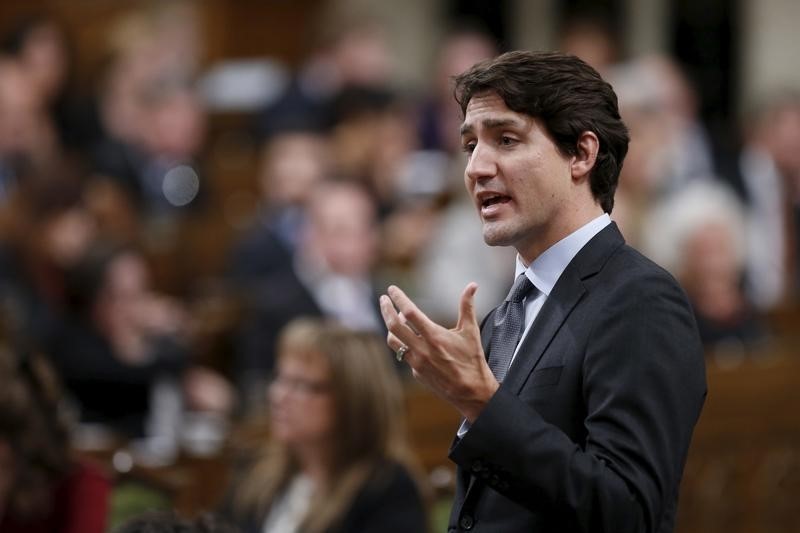By Ernest Scheyder
WANDERING RIVER, Alberta, May 13 (Reuters) - Canadian Prime
Minister Justin Trudeau will on Friday see the devastation
caused by a wildfire that tore through the Alberta town of Fort
McMurray and forced several oil sands operations to shut down.
The inferno is the first natural disaster to confront
Trudeau, whose Liberals took power last November. He promises
the federal government will do everything it can to help in a
rebuilding effort likely to take years.
After touring the most damaged areas, Trudeau will hold a
news conference with Alberta Premier Rachel Notley at 5:15 p.m.
ET (2115 GMT) in the provincial capital of Edmonton.
The 88,000 people who were evacuated hurriedly as the town
caught fire are living in temporary accommodation across the
province while authorities work to restore power, gas, water and
communications.
Local officials say it will be 10 days before they can even
produce a plan for resettlement, much less allow people to
return to a place where small fires are still erupting.
"I know how stressful it is to leave everything behind,"
said Alberta Municipal Affairs Minister Danielle Larivee.
"But your safety is very important to us and your community
is not yet safe and until it is people cannot go home," she told
a news conference on Thursday.
A Reuters eyewitness saw a steady stream of trucks carrying
drinking water head north on Thursday towards the large camps
that house workers employed by oil sands projects.
The wildfire knocked out nearly half, or 1.07 million
barrels per day (bpd) of Alberta's oil sands capacity. The
effort to restart projects is progressing slowly.
Four major oil firms operating in the area around Fort
McMurray have now declared force majeure, a contract clause to
remove liability for unavoidable catastrophes.
The fire spans 241,000 hectares (596,000 acres), growing
much more slowly than before. The Canadian military, which had
provided transport planes and helicopters, said on Thursday the
aircraft would start returning home.
Around 350 soldiers though will remain on a state of
heightened readiness.
"This fight is not over," said Brigadier General Wayne Eyre,
involved with military aid effort.
"This is just the beginning of what could be a long hot
summer," he told the news conference with Larivee.
(With additional reporting by Rod Nickel in Winnipeg; Writing
by David Ljunggren; Editing by Sandra Maler)
